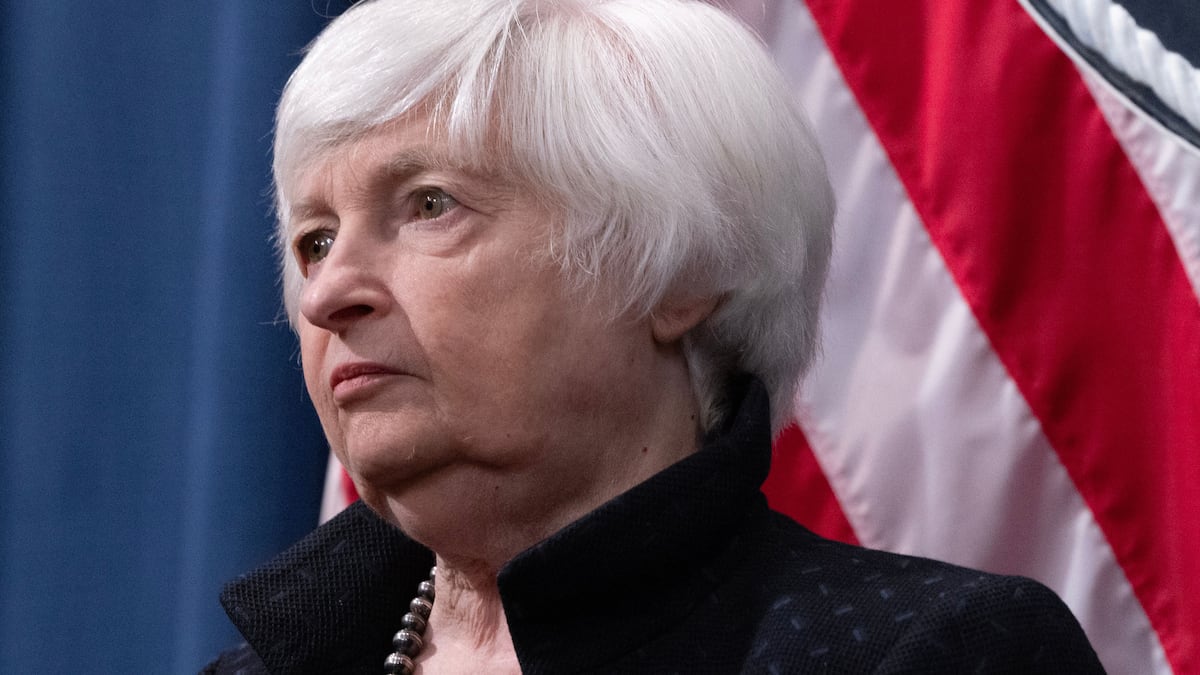- New DeFi tax regulations will likely come later this year.
- Industry developers and investors fears dApps could be made to collect user information.
New regulations that could “destroy the dream of DeFi” — in the words of one venture capital firm — will be finalised by year’s end, according to an official from the US Treasury Department.
The Treasury Department in June finalised rules that require certain crypto businesses to give customers annual forms detailing every sale or exchange of their assets.
Those rules, which will apply to centralised companies such as Coinbase, are meant to help American users file their taxes and to limit tax evasion.
But it delayed rules that would have applied the same requirement to decentralised businesses like noncustodial wallets and DeFi protocols, citing the outpouring of comments panning the proposed regulations.
Speaking at a panel on crypto taxation hosted by the American Bar Association Tuesday, Erika Nijenhuis, of the Office of Tax Policy, said the Treasury Department will likely finalise those regulations before the end of the year, according to another attorney who sat on the same panel.
The Treasury Department did not return a request for comment.
“This just fell off of people’s radar and now that it’s coming back on, there’s lots of concern as to what the rule will say,” Bill Hughes, director of global regulatory matters at Consensys, told DL News.
“And people should be concerned.”
As initially proposed, the regulations could force DeFi protocols and applications, their developers, self-hosted crypto wallets, and people who hold so-called governance tokens to verify the real-world identity of each user in order to generate the required tax forms, venture capital firm Andreessen Horowitz wrote last year in a letter to the Treasury Department.
Industry attorneys, software developers and investors were apoplectic: the rules undermined the very purpose of blockchain technology, which was built to enable peer-to-peer transactions, cutting out the middlemen typically tasked with verifying users’ identities and tracking their behaviour.
Crypto advocacy firm Fight for the Future began a campaign called “#dontkillcrypto” to marshal opposition to the proposed rules.
Crypto venture capital firm Dragonfly Digital Management said they “will likely push DeFi Actors and DeFi Applications offshore, and any that were to remain on US soil would have to become more centralised,” and “could destroy the very dream of DeFi.”
The Treasury Department received more than 44,000 comments, many of them attacking the regulations. While it’s unclear what form the finalised rules will take, industry attorneys aren’t holding much hope they’ve changed substantially since June.
“The Treasury Department and the IRS do not agree that non-custodial industry participants should not be treated as brokers,” the agency said when it finalised rules for centralised players.
“However, the Treasury Department and the IRS would benefit from additional consideration of issues involving non-custodial industry participants.”
With word the regulations are nigh, crypto attorneys are on edge.
“The initial proposal was pretty bad,” Gabriel Shapiro, general counsel at Delphi Digital, told DL News.
“The sense is that anything trying to impose tax reporting obligations on noncustodial wallets/apps is likely to be terrible.”
Lisa Zarlenga, a partner at Steptoe LLP who sat on the panel with Nijenhuis, said she had hoped the agency would wait to see how implementation went with centralised players before finalising regulations that would impact DeFi.
“Certain decentralised players will be treated as brokers. We just don’t know how far it’s going to reach,” she told DL News.
“Eventually, technology will enable compliance, I just don’t know that it’s there yet.”
Aleks Gilbert is DL News’ New York-based DeFi correspondent. You can contact him at aleks@dlnews.com.
